Diabetes research news archive: 2017-2022
Latest Diabetes research news from the University of Exeter

Let the patient choose their type 2 diabetes medication says research study
A largescale new study offers a new approach to treating in type 2 diabetes - that puts patients in charge of their own medication.

New way of exploring causes of rare condition could spare angst for families like Tilly’s
As a toddler, Tilly Douglas’s blood sugar was so variable that she would sometimes have to be on a feeding tube while eating – and would still experience dangerously low blood sugar levels within an hour. She was a regular resident at Great Ormond Street Hospital.

Two Exeter diabetes researchers named "Rising Stars"
Two researchers at the University of Exeter Medical School have been recognised as rising stars in diabetes research.

Research unlocks personalised care in type 2 diabetes
Moving away from a “one-size fits all” care regime has the potential to transform care for people with type 2 diabetes, a University of Dundee study has shown.

Low Psychological resilience predicts future high blood sugars in type 1 diabetes
New research from the University of Exeter and University of Brighton indicates that people who are diagnosed with type 1 diabetes are more likely to manage their condition successfully if they have high levels of psychological resilience.

Outstanding Exeter diabetes nurse wins prestigious leadership scholarship
An internationally renowned diabetes research nurse has been awarded a prestigious Florence Nightingale Foundation Leadership Scholarship.

Exeter research underpins NHS bid to identify thousands of cases of rare diabetes
Exeter research is providing knowledge and testing to support an NHS bid to diagnose thousands of people who are unaware that they have a rare form of diabetes.

Exeter doctor to launch diabetes education programme in Denmark
A diabetes expert at the University of Exeter has been awarded a fellowship at the Danish Diabetes Academy to develop an education programme to help people with Type 1 diabetes to exercise safely.
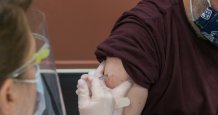
Higher excess COVID-19 death risk in middle-aged people with type 2 diabetes raises vaccine prioritisation questions
A largescale analysis led by the University of Exeter has found a disproportionately higher COVID-19 death risk in middle-aged people with type 2 diabetes

Diabetes nursing professor chosen for global celebration of women in healthcare
Diabetes nursing professor Maggie Shepherd is one of just four UK nurses and midwives to be included among the Women in Global Health’s 100+ Outstanding Women Nurses and Midwives.

Exeter Diabetes Professor wins Belgian’s top scientific prize from country’s queen
Andrew Hattersley, Professor of Molecular Medicine at the University of Exeter, has won the Baillet Latour Health Prize 2020

A few kilograms weight loss nearly halves the risk of diabetes, large scale research study finds
Providing support to help people with prediabetes make small changes to their lifestyle, diet and physical activity can almost halve the risk of developing Type 2 diabetes.

Understanding rare type of diabetes gives insights into critical mechanisms of insulin production
Solving the genetic puzzle of why babies developed a rare type of diabetes has uncovered a new biological pathway that is fundamental to insulin production

Young Investigator award for Exeter childhood diabetes researcher
An Exeter researcher who specialises in discovering the cases of types of diabetes that affect babies has been named as Young Investigator of the Year by the International Society for Paediatric and Adolescent Diabetes

Type 1 diabetes could begin in the womb, new research suggests
Type 1 diabetes can develop in babies under six months old, and the immune attack behind the condition may begin before they’re born

£2.5 million to study group treatment programme for people with severe obesity
A team of researchers based in the Westcountry has been awarded nearly £2.5 million from the National Institute for Health Research.

Screening UK Biobank blood samples identifies thousands of undiagnosed cases of type 2 diabetes
A study of approximately 200,000 blood samples from the UK Biobank has identified more than 2,000 undiagnosed cases of type 2 diabetes.

Buying lots of soft drink linked to low socio-economic status and unhealthier food choices
Households purchasing high volumes of sugary or diet drinks are more likely to have low socio-economic status, higher body mass index (BMI) and overall less healthy food purchases.

New test better predicts which babies will develop type 1 diabetes
A new approach to predicting which babies will develop type 1 diabetes moves a step closer to routine testing for newborns

£1 million award could identify a new form of genetic diabetes
An award of almost £1 million will help scientists at the University of Exeter unravel the genetics mysteries of a rare form of diabetes.

Genetics could help diagnose diabetes in Indians, study shows
A new way of using genetics to diagnose diabetes could pave the way for better diagnosis and treatment in Indians, new research has concluded.
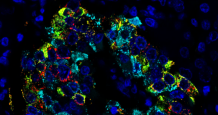
Type 1 diabetes is not one but two distinct conditions, defined by diagnosis age
Children who are diagnosed with type 1 diabetes under the age of seven have a different form (or “endotype”) of the condition compared with those diagnosed aged 13 or above, new research has shown.

Newly appointed Mireille Gillings Fellows will develop future women leaders in health science
The University of Exeter has appointed three Mireille Gillings Professorial Fellows in Health Innovation.

New calculator will help clinicians diagnose diabetes more accurately
A new calculator developed by the University of Exeter will help clinicians classify whether a patient has type 1 or type 2 diabetes, ensuring they get the best treatment and reducing complications.

Scanning the lens of the eye could predict type 2 diabetes and prediabetes
New research shows that specialist measuring of the lens in the eye can predict patients with type 2 diabetes and impaired glucose tolerance (IGT) (also known as prediabetes, a condition that often leads to full blown type 2 diabetes).

Young Researcher Award for diabetes and pregnancy specialist
An academic specialising in diabetes and pregnancy has been recognised with an international award.

Genetics Society awards for two Exeter Academics
Two academics at the University of Exeter are set to receive prestigious awards from the Genetics Society.

£6 million award to expand diabetes research excellence at Exeter
A £6 million Government award will enable Exeter’s globally-renowned diabetes research to expand to the next level, enabling even more benefit to patient care.

Research reveals insulin-producing beta cells may change function in diabetes
A revolutionary new study using only materials derived from humans has revealed that insulin-producing beta cells can change their function in diabetes – and that this change may be reversible.

World-leading Exeter diabetes Professor named among Nation’s Lifesavers
World-renowned diabetes researcher Professor Andrew Hattersley has been named as one of ‘The Nation’s Lifesavers’ in the Made@Uni campaign.

Eight Exeter diabetes discoveries
Our world-leading diabetes research is underpinned by our expertise in genomics and cutting-edge innovation in technology.

How both mother and baby genes affect birth weight
The largest study of its kind has led to new insights into the complex relationships surrounding how mothers’ and babies’ genes influence birth weight.

A third of type one diabetes is misdiagnosed in the over 30s
More than a third of people over the age of 30 who are initially diagnosed with type 2 diabetes actually have type 1, meaning they are not receiving the right treatment, new research has revealed.

Simple clinical features can help personalise type 2 diabetes treatment
A new study from the University of Exeter Medical School has shown that a person’s characteristics such as weight and age at diabetes diagnosis provide a simple way to select the diabetes drug that is likely to be best for them.

Diabetes Research shortlisted for The Guardian ‘Research Impact Award’
Research to improve diagnosis and treatment of diabetes by The University of Exeter Medical School has been shortlisted for The Guardian Research Impact Award.

Hat-trick of Success at the Diabetes UK Professional Conference
Three academics from the University of Exeter Medical School were recognised for research excellence at the Diabetes UK Professional Conference (DUKPC).

Exeter diabetes expert recognised for positive patient impact
A world-leading diabetes specialist at the University of Exeter Medical School has received an NHS award for improving health outcomes for patients.

Exeter academic to be first nurse to give prestigious lecture at Diabetes UK conference
An academic from the University of Exeter Medical School is the first nurse ever to be awarded the Arnold Bloom lecture, at the Diabetes UK Professional Conference.

Simple, cheap C-Peptide helps patients get the right diabetes diagnosis and treatment
A simple and inexpensive test to measure the body’s insulin levels is helping clinicians to determine what type of diabetes a patient has, meaning many people with diabetes can change treatment.

Exeter researcher nominated for Health Scientist of the Year
A world-leading diabetes specialist at the University of Exeter Medical School is one of only two nominated to receive the highly prestigious NHS Healthcare Scientist of the Year award.

Research changes GP guidelines on frailty in diabetes
New guidelines will help GPs get the best outcomes for older people with diabetes after they were changed to include specific advice around frailty.
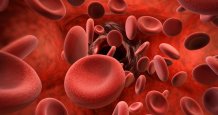
New risk score far more effective for diabetes diagnosis
A new way of screening babies and adults for future risk of type 1 diabetes will be much more effective at identifying the condition than current methods, new research has concluded.

Student diabetes researcher with diabetes demystifies condition
A student researcher who specialises in type 1 diabetes, after being diagnosed herself in her teens, has now launched a blog to demystify the condition.
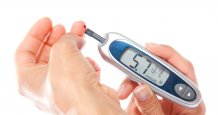
Genetic factors tied to obesity may protect against diabetes
Some genetic variations associated with obesity actually protect against Type 2 diabetes, heart attack and stroke, new findings suggest.

Over 30s with type 1 diabetes frequently misdiagnosed with type 2
New research presented at this year’s annual meeting of the European Association for the Study of Diabetes (EASD) reveals that many cases of type 1 diabetes (T1D) diagnosed after the age of 30 are not being properly identified and are frequently misdiagnosed as being type 2 diabetes (T2D), potentially leading to delays in receiving appropriate treatment.

Weight gain from adolescence linked to higher risk of type 2 diabetes
New research presented at this year’s annual meeting of the European Association for the Study of Diabetes (EASD) in Berlin, Germany, reveals that weight gain between the age of 10 and adulthood is associated with type 2 diabetes (T2D) risk that is independent of body mass index (BMI).

Simple factors that can avoid harmful side effects in type 2 diabetes
Clinicians can match people with type 2 diabetes to the right drug for them to improve control of blood sugar and help avoid damaging side-effects, simply by factoring in simple characteristics such as sex and BMI into prescribing decisions, new research has shown.

Diabetes Week: Eight Exeter diabetes discoveries
To mark Diabetes Week, we’re celebrating eight Exeter Diabetes discoveries that are changing lives worldwide.

New hope from the “seven year switch” in Type 1 diabetes
New research has shown that the rapid decline in insulin production that causes Type 1 diabetes continues to fall over seven years and then stabilises.

“Miracle treatment” long-term success for babies with diabetes
Over a decade, Emma Matthews has progressed from fearing for her son’s life every night to being safe in the knowledge that his diabetes is well managed thanks to the long-term success of “miracle treatment” tablets.

Exeter diabetes researcher wins top European award
A rising research star at the University of Exeter Medical School has won a prestigious European prize, for her commitment to the study of diabetes.

New guidance on treating diabetes in elderly and frail adults
New guidance has been published on managing diabetes in the elderly, including for the first time how to manage treatment for the particularly frail.

Success for Exeter Medicine students at Diabetes UK conference
Exeter students have won a national prize for their scientific posters at last week’s Diabetes UK professional conference.

Genes could protect against Type 2 diabetes, new study finds
Scientists in Exeter and London have identified seven new genetic variants that could lower a person’s risk of developing Type 2 diabetes.

Exercise could delay progression of Type 1 diabetes when first diagnosed
Innovative new research has suggested that physical activity around the time people are diagnosed with Type 1 diabetes could have long-term health benefits, improve blood glucose levels, reduce hypos and reduce the risk of complications, such as retinopathy and neuropathy.

Exeter academics in star roles at Diabetes UK conference
World-renowned diabetes researchers from the University of Exeter Medical School will give prestigious talks at the Diabetes UK Professional Conference 2018 this week.

Exeter PhD student to attend prestigious Nobel meeting
A PhD student from the University of Exeter has been invited to attend a prestigious worldwide event.

Exeter researcher running Bath Half to beat diabetes
A researcher from Exeter will be pounding the pavements in the Bath Half Marathon in aid of Diabetes UK, the charity that funds her work.

Exeter’s world diabetes expert awarded CBE
A world-leading diabetes expert today received his CBE for his work in revolutionising global diagnosis and treatment.

Gene linked to opposing blood sugar conditions in single family
Scientists from the University of Exeter Medical School have uncovered new insights into the genomics of diabetes through the rare case of a family where one gene is associated with two opposing conditions.

Type 1 diabetes as common in adults as children, but many adults are misdiagnosed
Type 1 diabetes is not predominantly a ‘disease of childhood’ as previously believed, but is similarly prevalent in adults, new research published in the Lancet Diabetes & Endocrinology shows.

World Diabetes Day: Exeter researcher recruits trial participants
A Diabetes expert is recruiting hundreds of people with a recent diagnosis of the disease to an ongoing clinical trial.

Healing molecule discovery could reduce limb amputations for diabetes patients
Scientists have discovered new insights into a molecule which is part of the body’s tissue repair system, in a finding which could help treat non-healing wounds and injuries, such as diabetic foot.

Exeter’s world diabetes expert awarded CBE
A world-leading diabetes expert has been awarded the CBE in the Queen’s birthday honours list for his work in revolutionising global diagnosis and treatment.
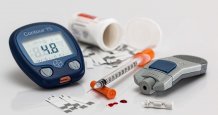
Variation in genetic risk explains which people develop type 1 diabetes in later life
Having certain genetic variants could explain why people can develop type 1 diabetes at markedly different ages, including later in life, says new University of Exeter research being presented at this year’s annual meeting of the European Association for the Study of Diabetes (EASD) in Lisbon, Portugal (11-15 Sept).

Exeter researcher wins prestigious diabetes research award
An Exeter researcher has just been awarded £362,337 from leading charity Diabetes UK to understand if certain genes can protect people from developing Type 2 diabetes.

Two Exeter diabetes researchers recognised as “Rising Stars”
Two researchers at the University of Exeter Medical School have been recognised as rising stars in diabetes research.

£800,000 to develop life-saving heel-prick test for babies with diabetes
Exeter’s world-leading diabetes experts have been awarded more than £800,000 to develop a test for babies with neonatal diabetes.

Diabetes expert wins top international scientific award
A world expert in diabetes will deliver a lecture presented as the top international science award by Diabetes UK.

Scientists develop calculators to help clinicians decide on best diabetes treatments
People with diabetes could benefit from digital ‘risk calculators’ in the future that help healthcare professionals prescribe the best combination of medicine for each person.

Exeter doctor wins prestigious diabetes research award
A University of Exeter researcher has just been awarded nearly £800,000 to find out why Type 1 diabetes develops in babies.
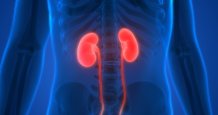
New drive to tackle deadly global disease
The University of Exeter is part of a pan-European partnership worth almost 30 million Euros to improve the prevention and management of Diabetic Kidney Disease.
